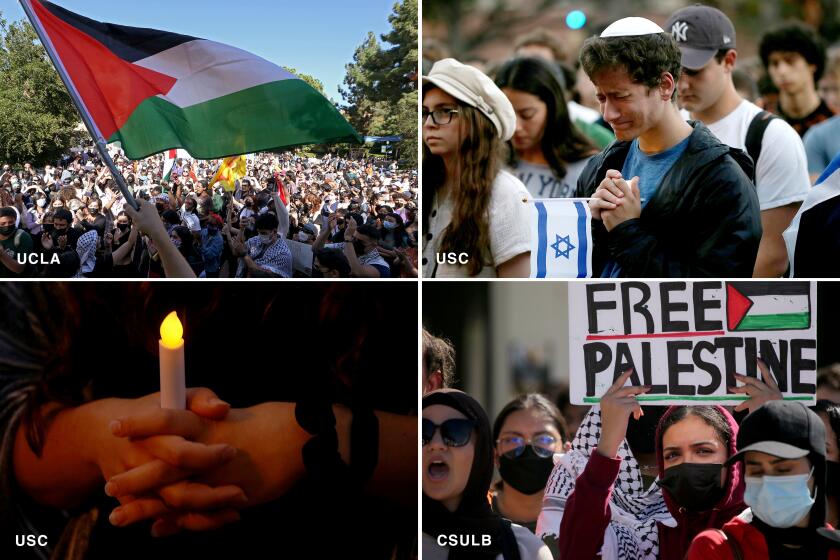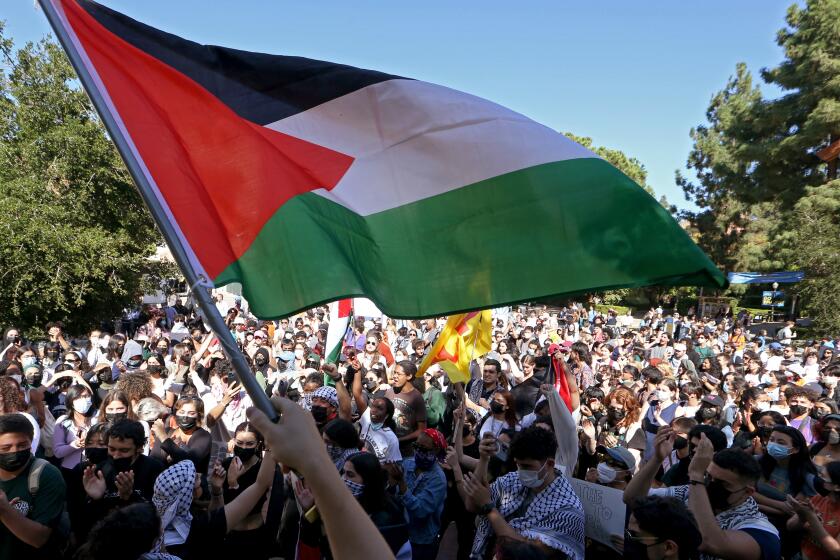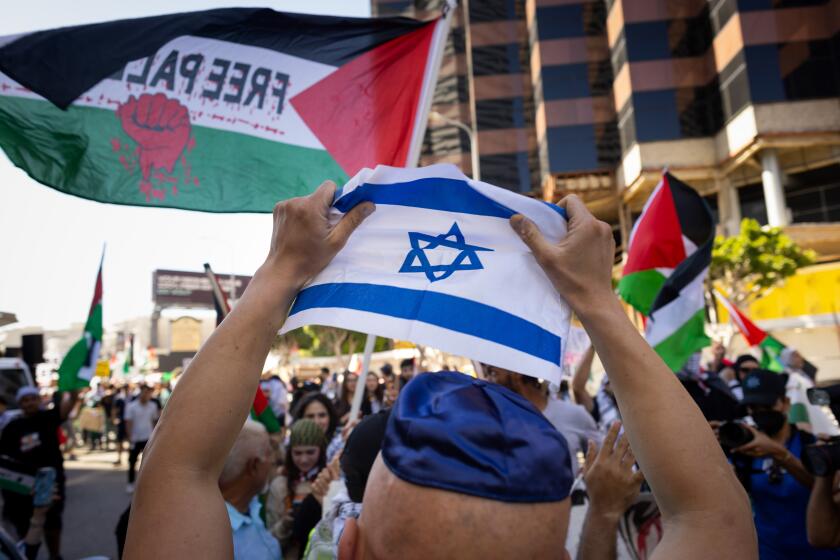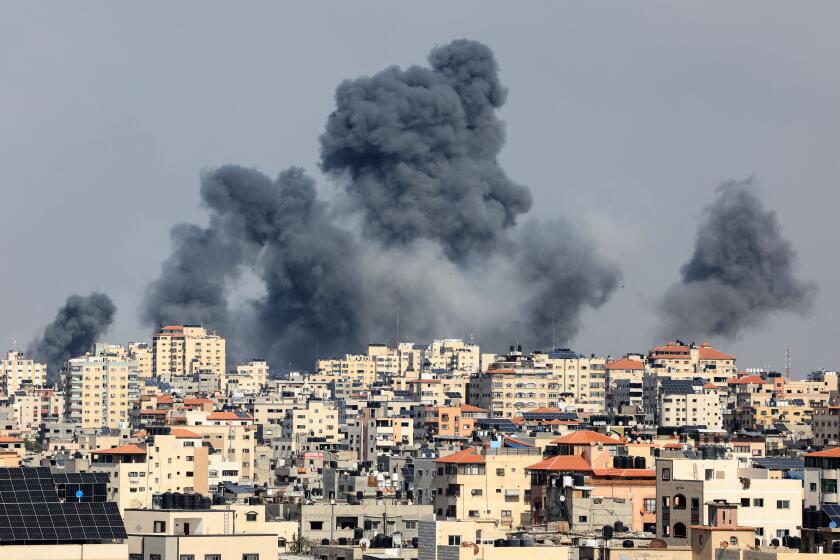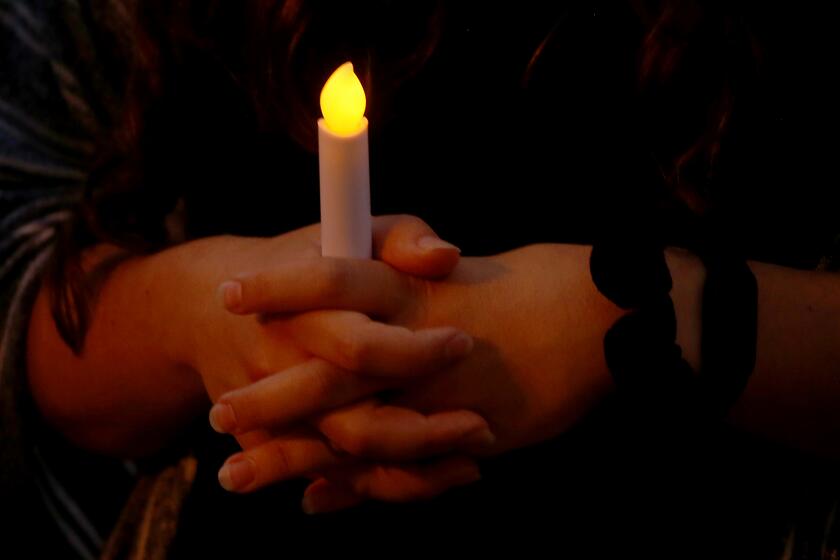Opinion: Let students speak for themselves on Israel and Hamas. We don’t need outside groups to doxx or threaten anyone
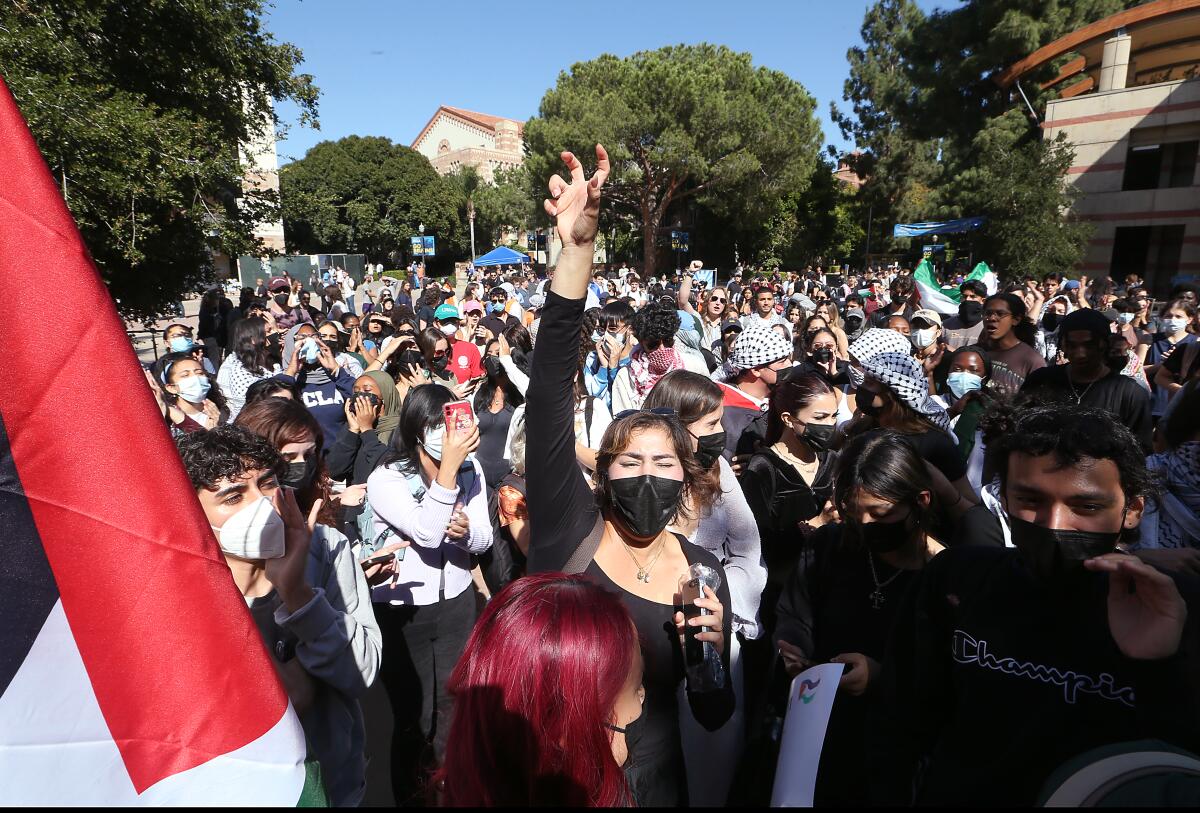
In the wake of a terror attack in southern Israel and the war taking place inside Israel and the Gaza Strip, American talk shows, pundits and partisans seem to have one question on their minds: What are college students feeling?
All this disproportionate attention paid to college campuses actually makes things worse for students who are trying to comprehend this catastrophe in Israel-Palestine. In a time of such horrific violence overseas, focusing on collegiate activity is a reflection on the egocentrism of the American attention span. If people want to know what it is like to be an American college student, then I believe students should tell our own stories.
College campuses are supposed to be bastions of intellectual discourse and debate, but the war in Gaza underscores tense narratives and little if any interchange between students.
At my university, at every American university, classes have gone on, parties have continued throughout the weekend, and clubs still pass out fliers on our main walkway. My world, and the world of every other Jewish, Palestinian and Israeli student has not continued as usual. We check WhatsApp to see if our loved ones are alive, dead, missing or kidnapped while in lecture. We try to get out and be social, wondering if it’s obvious our minds are 7,500 miles away. And of course, there are no shortages of protests, statements and social media analyses for us to take part in.
As someone who has spent most of my college career attempting to engage my peers on the history and present reality in Israel-Palestine, I have long been frustrated by propagandist organizations that believe their “side” is deserving of unconditional support. The purpose of college should be to nurture and develop ideas and solutions, so it’s not surprising that these outside groups seek to recruit students like us.
To a certain kind of educated younger audience, the modern state of Israel looks a lot like yet another byproduct of European imperialism.
The truth is that as some students have explored and developed ideas, some truly contemptible viewpoints have been shared and platformed, and students on my campus are not immune from this.
Individuals and student groups have issued statements that have elided or even praised the brutal massacres that Hamas perpetrated as being done in the name of “decolonization,” ”liberation” and/or “resistance.” No one who perpetuates this utterly immoral view should be considered a serious commentator on the situation in Israel-Palestine. However, one should condemn ideas, abhorrent as they may be, and not individuals.
Our close connection does not mean we agree on all aspects of the catastrophic situation in the Middle East. But the path to peace starts by not selectively grieving only those with whom we share religion or national origin.
No college student, no matter their ideas or beliefs, should be made to feel unsafe on campus. Each viral sound bite, each video of a rally splashed across our screens paints an image of college campuses as deeply hostile to any student who dares show their sympathies toward the Israeli people in their darkest hour. In reality, I believe that most students genuinely care about all civilians affected by the terror attack on Israeli soil as well as the humanitarian crisis currently taking place in Gaza — even students who may be uninformed or misguided in their analyses.
Yet outside organizations, some of which are run anonymously, have seized upon these moments to doxx and harass students on college campuses, creating a toxic culture that generally begins online and bleeds into real-life threats.
This intimidation does not stop dangerous ideas from spreading. When people feel threatened, they give in far more easily to prejudiced inclinations. Bullying college students into silence risks reinforcing their viewpoints rather than opening them to persuasion. And so, they double down, and the cycle continues.
As Israel is poised for a ground invasion of Gaza, and bombing continues, people fear that the goal is to empty the place of Palestinians.
At the same time, the majority of students, who want to learn out of curiosity and compassion, are often afraid to seek out information on fraught issues or to engage in any meaningful discussion. This kind of climate makes every student less safe.
Israeli, Palestinian and Jewish students are profoundly hurting right now. I have a Palestinian friend from Gaza who lost 23 family members, an Israeli friend who identified the corpse of her ex-boyfriend while scrolling through social media — and I am lucky to be one degree of separation from these horrors. We are all learning how to navigate a cruel world that allows such atrocities to occur. What all of us, but especially college students, need first and foremost is compassion.
After the attack in Israel, my Facebook feed filled with funeral announcements and pleas for information. But I also see friends frame it as anti-colonial resistance.
We need space of our own, as a university community, to mourn and pray for our loved ones. And, through our grief, we must mobilize and educate our university communities. Together, we can create a new generation that will build a world where the promise of Isaiah will come true, where “nation shall not lift up sword against nation, neither shall they learn war any more.”
Rachel Burnett is a senior at UCLA double majoring in psychology and Middle Eastern studies. She is the national communications chair for J Street U.
More to Read
A cure for the common opinion
Get thought-provoking perspectives with our weekly newsletter.
You may occasionally receive promotional content from the Los Angeles Times.
